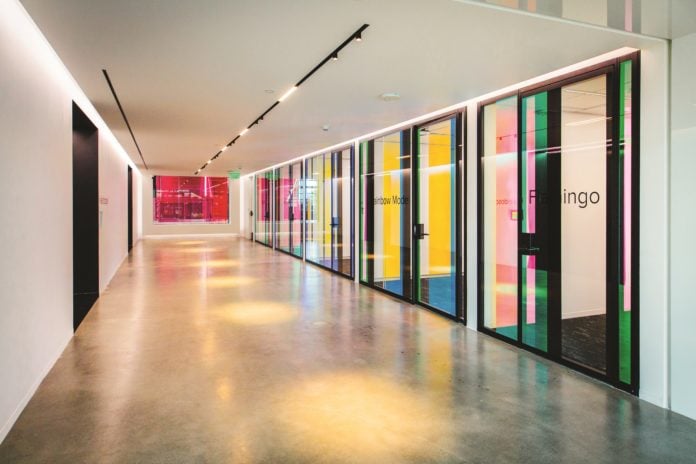The clock is ticking for TikTok.
ByteDance Ltd., parent company of the wildly popular short-form video platform, has been weighing its options for the app’s operations in the United States.
On Aug. 6, President Donald Trump signed an executive order that called for a ban on the TikTok app if its U.S. operations aren’t sold to an American company by Sept. 20.
The move by the White House followed months of escalating tension, including an investigation into the app as a possible national security threat. The administration increased pressure on TikTok, despite the U.S. division’s continued efforts to distant itself from its Beijing-based parent company.
TikTok’s largest U.S. office is located in Culver City, where Chief Executive Kevin Mayer, a former Walt Disney Co. executive, is based.
It remains unclear whether the app’s parent company is willing to sell a significant part of its highest-valued property in the face of political pressure. The executive order also raises questions about the technical complexity of splitting a social media platform along country borders.
ByteDance reportedly plans to file a federal lawsuit against the Trump administration challenging the executive order, which some are calling overreach by the White House.
Meanwhile, TikTok has been exploring the option of a spin-off to become a U.S. firm, including being taken over by Microsoft Corp. The app reportedly had preliminary talks about a potential combination with Twitter Inc., too.
But the ongoing conversations with Microsoft and Twitter are unlikely to end in a deal, due to the low prices being offered, according to reports by the Hong Kong-based South China Morning Post.
Even if TikTok and Microsoft end up agreeing on a price point, Microsoft’s takeover will be a technically complex endeavor.
“This would be a very hairy post-merger integration. Much of the technology would need to be altered,” said Mike Vorhaus, founder and chief executive of Hollywood-based digital media consulting firm Vorhaus Advisors.
Microsoft would not buy TikTok as a whole. Instead, it is pursuing a deal to acquire the app’s operations in the United States, Canada, Australia and New Zealand, according to an Aug. 2 blog post by Microsoft.
Microsoft said it would ensure that all private data of TikTok’s American users is transferred to, and remains in, the United States.
But the app still shares part of the server code with ByteDance, which provides basic functionality of the apps, such as data storage, algorithms for moderating and recommending content and the management of user profiles, according to Reuters. To ensure TikTok’s continued services, Microsoft would likely need to rely on ByteDance while it reviews and revises the code and moves to a new back-end infrastructure to serve users. The clean break Trump and some lawmakers envision could take a year or more.
“In my opinion, the current and future reality of the world we live in is a tighter, more interconnected world. Due to the internet and other major factors, it is increasingly hard to draw traditional country boundaries around digital services and content,” Vorhaus said.
Advertisers are preparing themselves for the uncertain future.
“Many of our clients have started Triller accounts as a sort of placeholder but have continued using TikTok in the hopes that they can maintain their audiences there and continue to produce content on a platform and for an audience they love,” said Vanessa Flaherty, partner and executive vice president of talent for West Hollywood-based influencer management company Digital Brand Architects.
“With (Facebook Inc.’s) Reels launching just a week ago, many have also started posting their popular TikTok videos on Instagram to test the waters,” she added.
In the meantime, TikTok continues to move forward with new initiatives and deals. On Aug. 11, the app and the New York Yankees reportedly reached a $10 million deal for the team and the Yankees’ YES regional sports network to create exclusive content for the video app. The deal would also provide TikTok branding in Yankee Stadium.
On Aug. 10, the app revealed the first 19 recipients of its Creators Fund awards, a $1 billion program to support U.S. creators on the platform.
And, in late July, the company announced plans to hire 10,000 employees in the U.S. over the next three years.

